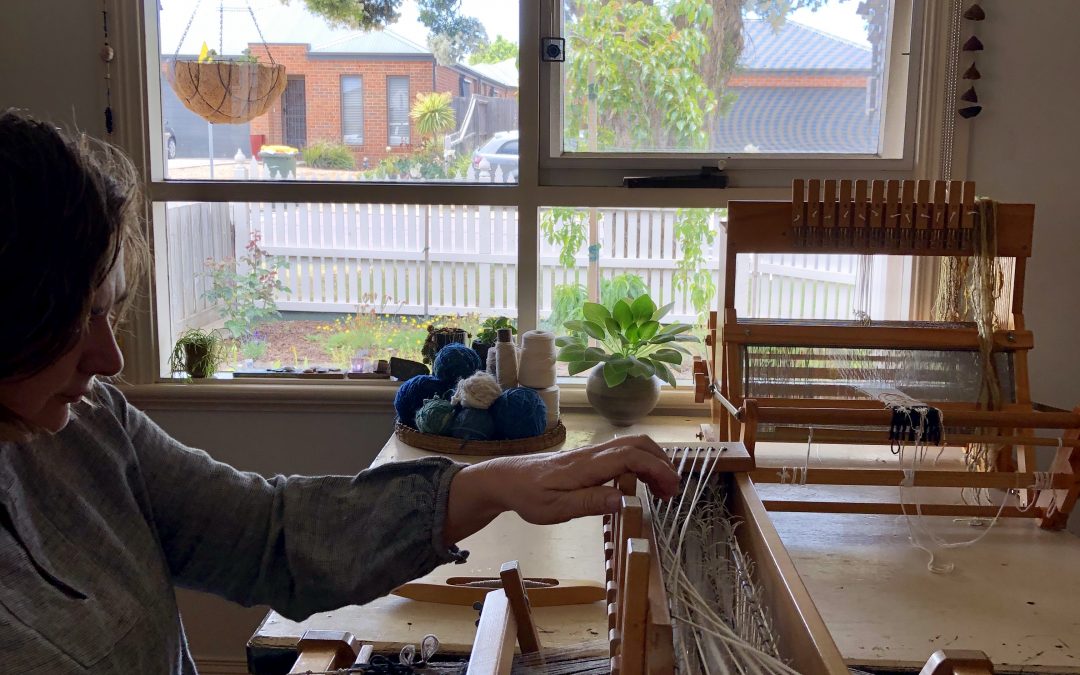A childhood spent on a farm and a familiar history of making and crafting compel Deborah to weave.
We recently spent a few minutes with Geelong based artist and weaver, Deborah McHugh… here’s what she shared with us.
Deborah, please tell us a little about yourself, your practice, your processes…
I’m a Geelong based artist and weaver working with made, remade and waste materials to explore the traditional craft of hand weaving within a contemporary art context. Each works identity is formed through the narrative of individual processes and is captured in the physical and visual texture of the material.
What are you working on at the moment?
Just completing a collaborative project with a textile artist friend who makes incredible felted sculptural pieces using rare sheep breed fleece. All of the materials in this work have been dyed using natural plant dyes. Apart from the fleece, we used waste and secondhand materials for the weaving. The work has evolved from our connection with indigo dyeing and other natural dye experimenting.
Please describe your typical work day
I work in a studio space at home in Geelong. Weaving is a solitary process and so blocks of time throughout the day work best for me. Through the isolation of 2020 l learnt to find ways to connect to other makers, and to include ritual and journalling into my routine. This year l’ve included study too!
Whatever or whoever inspires you to create?
My weaving is influenced by a childhood spent on a farm and a familiar history of making and crafting. Flowing from this, my textile work comes from a deep response inside to connect with the materials. It is alive inside of me and is an expression of who l am and what l can give. It is an art of recovery and memory.
What’s the best piece of advice you have received?
I’ve just begun a creative arts degree in visual arts at Deakin and as it is very present with me l want to share some incredibly sound advice from a lecture called ‘Resetting things, giving them a new task’, from Associate Professor Patrick Pound l’ve just listened to.
“No matter what the circumstances, my advice is always to make something. To just get started. It’s the starting that stops most people, then, make it again. Make it with someone else. Try it again. Try it differently. Pretty quickly you will establish a working pattern and then gradually a sensibility that is all your own.”
